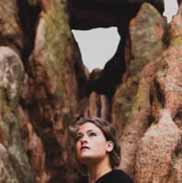Music Appreciation Chapters 21-33 – Flashcards
Unlock all answers in this set
Unlock answersquestion
Theme
answer
melodic idea used as a basic building block in the construction of a composition
question
Thematic development
answer
musical expansion of a theme by varying its melodic outline, harmony, or rhythm
question
Motive
answer
short melodic or rhythmic idea; the smallest fragment of a theme that forms a melodic-harmonic-rhythmic unit
question
Absolute music
answer
music that has no literacy, dramatic, or pictorial program
question
Chamber music
answer
ensemble music for up to about ten players, with one player to a part
question
String quartet
answer
One of the most common chamber ensembles, made up of two violins, viola, and cello. The first violin has the melody and the other three instruments provide accompaniment.
question
Divertimento
answer
classical instrumental genre for chamber ensemble or soloist, often performed as light entertainment
question
Serenade
answer
classical instrumental genre that combines elements of chamber music and symphony, often performed in the evening or at social functions
question
Rocket theme
answer
a quick, aggressively rhythmic theme rising from low to high register
question
Steam roller
answer
effect from the use of drawn-out crescendos slowly gathering force as they rise to a climax
question
Cadenza
answer
virtuostic solo passage in the manner of an improvisation, performed near the end of an aria or a movement
question
Sonata
answer
instrumental genre in several movements for soloist or small ensemble
question
Mass
answer
central service of the Roman Catholic Church
question
Requiem mass
answer
Roman Catholic Mass for the Dead
question
Oratorio
answer
large-scale dramatic genre originating in the Baroque, based on a text of religious or serious character, performed by solo voices, chorus, and orchestra; similar to opera, but without scenery, constumes, or action
question
Opera seria
answer
tragic Italian opera (serious)
question
Opera buffa
answer
Italian comic opera, sung throughout
question
Ballad
answer
English comic opera, usually featuring spoken dialogue alternating with songs set to popular tunes; also called dialogue opera
question
Singspiel
answer
comic German drama with spoken dialogue; the immediate predecessor of Romantic German opera
question
Opera comique
answer
French comic opera, with some spoken dialogue
question
Strophic
answer
song structure in which the same music is repeated with every stanza (stophe) of the poem
question
Through-composed
answer
song structure that is composed from beginning to end, without repetitions of large sections
question
Modified strophic
answer
song structure that combines elements of strophic and through-composed forms; a variation of strophic form in which a section might have a new key, rhythm, or varied melodic pattern
question
Lied
answer
German for "song"; most commonly associated with the solo art song of the nineteenth century, usually accompanied by piano
question
Song cycle
answer
group of songs, usually Lieder, that are unified musically or through their texts
question
Etude
answer
study piece that focuses on a particular technical problem
question
Nocturne
answer
"night piece"; common in the nineteenth century, often for piano
question
Prelude
answer
instrumental work intended to precede a larger work
question
Polonaise
answer
stately Polish processional dance in triple meter
question
Mazukra
answer
type of Polish folk dance in triple meter
question
Shape-note
answer
musical notation system originating in nineteenth-century American church music in which the shape of the note heads determines the pitch; created to aid music reading
question
Program music
answer
instrumental music endowed with literary or pictorial associations, especially popular in the nineteenth century
question
Bel canto
answer
"beautiful singing"; elegant Italian vocal style characterized by florid melodic lines delivered by voices of great agility, smoothness, and purity of tone
question
Music drama
answer
Wagner's term for his operas
question
Leitmotif
answer
"leading motive," or basic recurring theme, representing a person, object, or idea, commonly used in Wagner's operas



